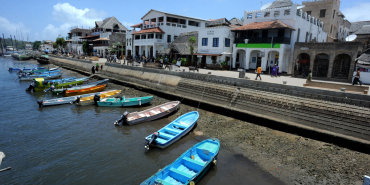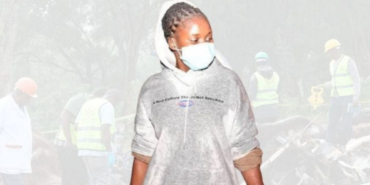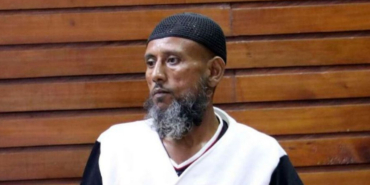GSU Officer Fatally Shoots Wife and Daughter Before Taking His Own Life

A General Service Unit (GSU) officer stationed at Mokowe Camp perpetrated a murder-suicide early Sunday morning, claiming the lives of his wife, their five-year-old daughter, and ultimately, his own.
This is according to Lamu County Police Commander Kipsang Changach. The officer, whose identity has not been officially released, reportedly left his post without authorisation before fatally shooting his wife, a primary school teacher and their young daughter in Mokowe township, located near the camp. He then turned the weapon on himself. Investigators are currently on scene piecing together the motive, but no suicide note was found.
"Preliminary theories suggest domestic issues may have played a role, but, colleagues of the deceased had not observed any prior signs of distress or mental health struggles." Commander Changach said.
The tragic event has sent shockwaves through the close-knit community of Mokowe. Neighbour Mohamed Yusuf describes the couple as seemingly loving and peaceful, noting that the wife had other children besides the deceased daughter. "We’ve known them as a peaceful family," Yusuf said, reflecting the community's disbelief.
The bodies have been transported to the Malindi Sub-County Hospital morgue for post-mortem examinations as authorities launch a full-scale investigation. Commander Changach has implored officers facing challenges to seek help rather than resorting to violence or self-harm.
"We need to open up and discuss our struggles rather than taking drastic measures that harm our loved ones and ourselves," he emphasised.
The Lamu tragedy is the latest in a disturbing trend of suicides involving police officers in Kenya, raising serious questions about the mental well-being of those tasked with maintaining law and order. Law enforcement officials report an increase in suicides within the police force, often attributed to a combination of occupational stress, personal struggles, and underlying mental health challenges.
The National Police Service has initiated counselling programs and mental health support initiatives to address this growing problem. The Police Service Commission has also established a specialised unit dedicated to providing psychological support to officers dealing with job-related pressures. This unit's mandate includes outreach programs designed to prevent mental health crises and substance abuse among law enforcement personnel.
Despite these interventions, anecdotal evidence suggests that an average of three police officers die by suicide each month. The demanding nature of police work, which includes managing public unrest, enforcing laws in volatile situations, and confronting dangerous criminals, places officers under immense pressure, making them susceptible to mental health struggles.
The mental health crisis among police officers extends beyond Lamu County. In Homa Bay County, another officer, identified as David Okebe Goga, died by suicide after poisoning his two sons and a nephew at his rural home. Goga had returned home three weeks prior from Marsabit and reportedly struggled with marital and work-related stress. On Sunday afternoon, his body was discovered hanging from the roof of his home, leaving family and neighbours in shock and grief.
According to Goga's brother, Fred Ochieng, the officer had mentioned plans to visit their ailing mother in the hospital on Saturday, showing no outward signs of distress or suicidal intent.
"It wasn’t easy to tell he was troubled. There was nothing suspicious about his behaviour," Ochieng recounted.
A suicide note found at the scene, however, revealed deeply rooted frustrations. In the letter, Goga accused his father-in-law of exerting undue pressure on his wife's education, implying that she was being pushed to prioritise her family's future over their household. He also expressed resentment over professional difficulties, particularly regarding a senior officer who had allegedly issued threats against him.
Goga's note included burial instructions, specifying that his body and those of the children should not be placed in caskets but wrapped in blankets. His brother described him as an ambitious yet reserved individual, making it difficult for others to detect signs of distress. The bodies were transferred to the Homa Bay County Referral Hospital Mortuary.
Law enforcement personnel often face extreme pressure, including long working hours, exposure to traumatic events, and the responsibility of maintaining order in challenging environments. These stressors, if not properly managed, can lead to severe psychological distress. Police authorities continue to explore measures to support officers in distress.
Efforts include access to counselling, peer support programs, and the establishment of specialised mental health units. However, experts argue that addressing the issue requires a cultural shift within the force, one that encourages open dialogue about mental health challenges without fear of stigma.














Add new comment